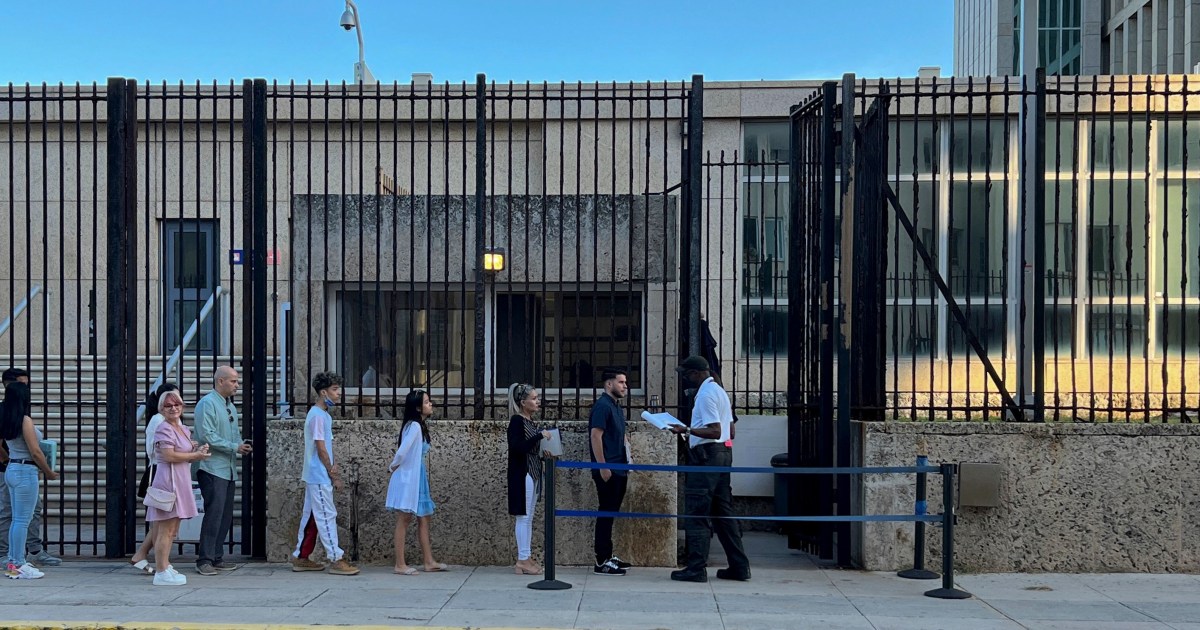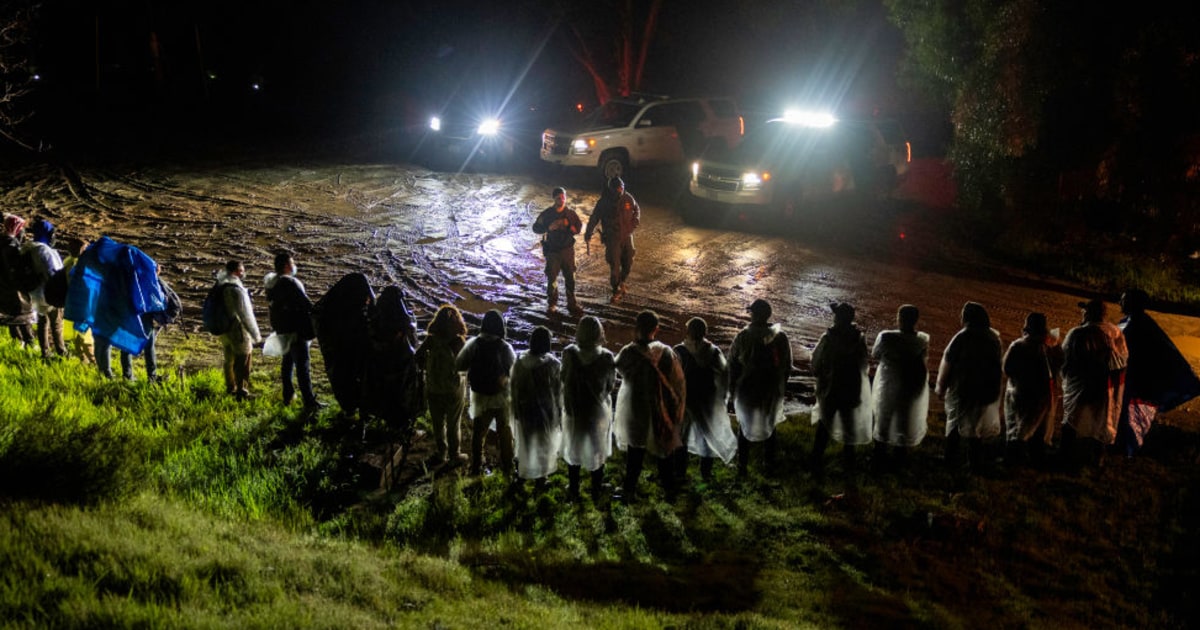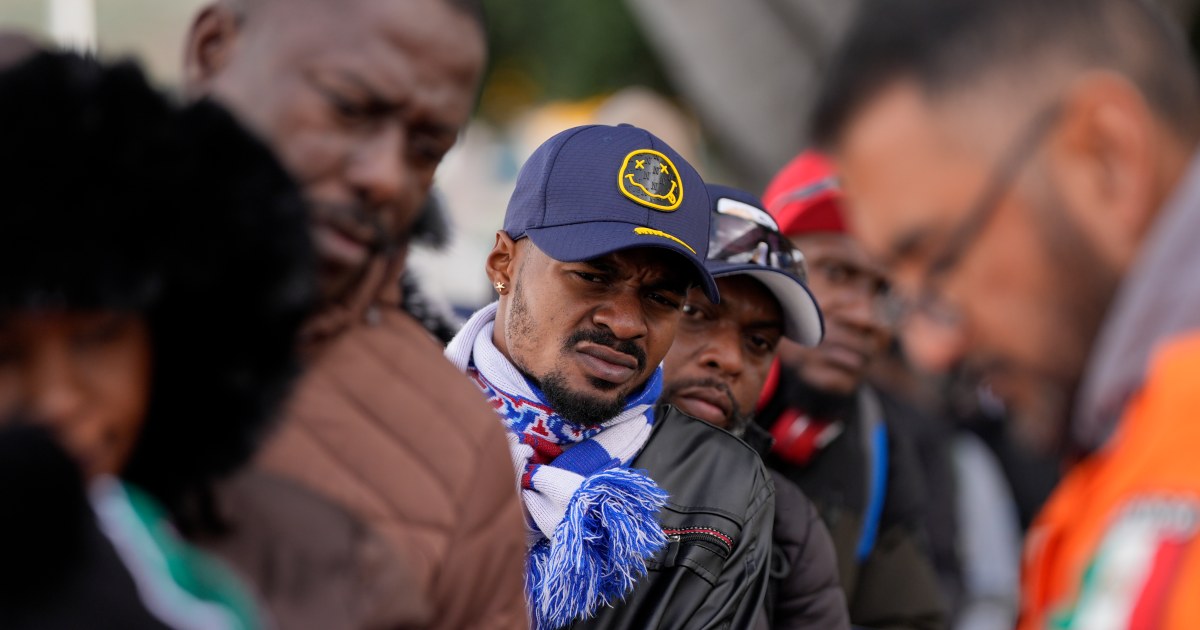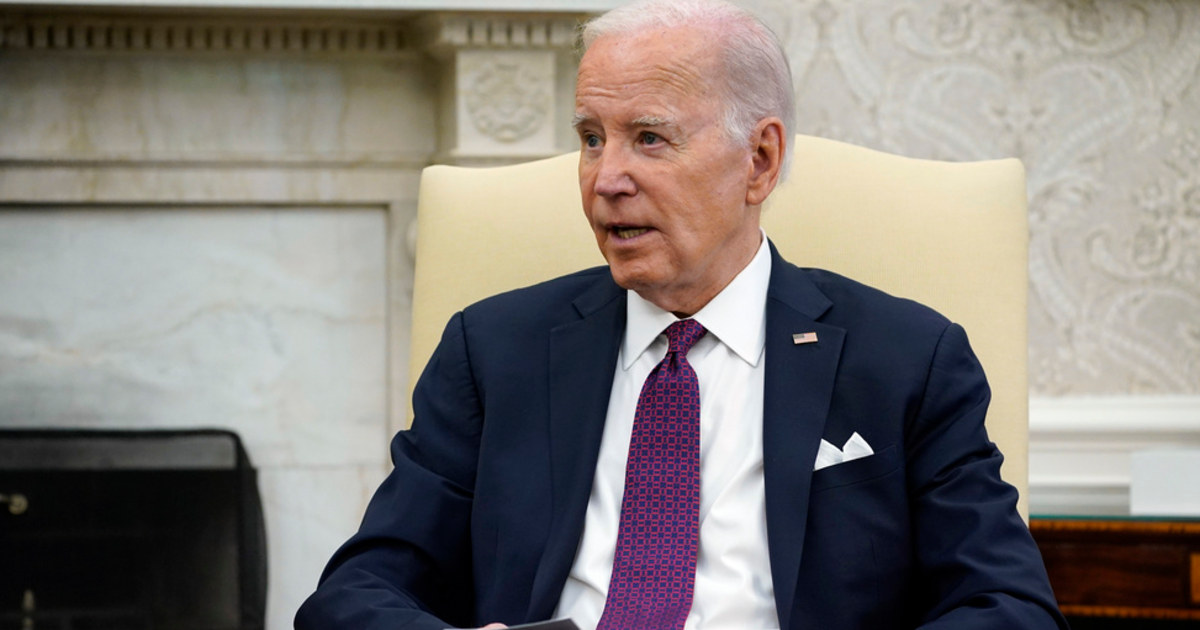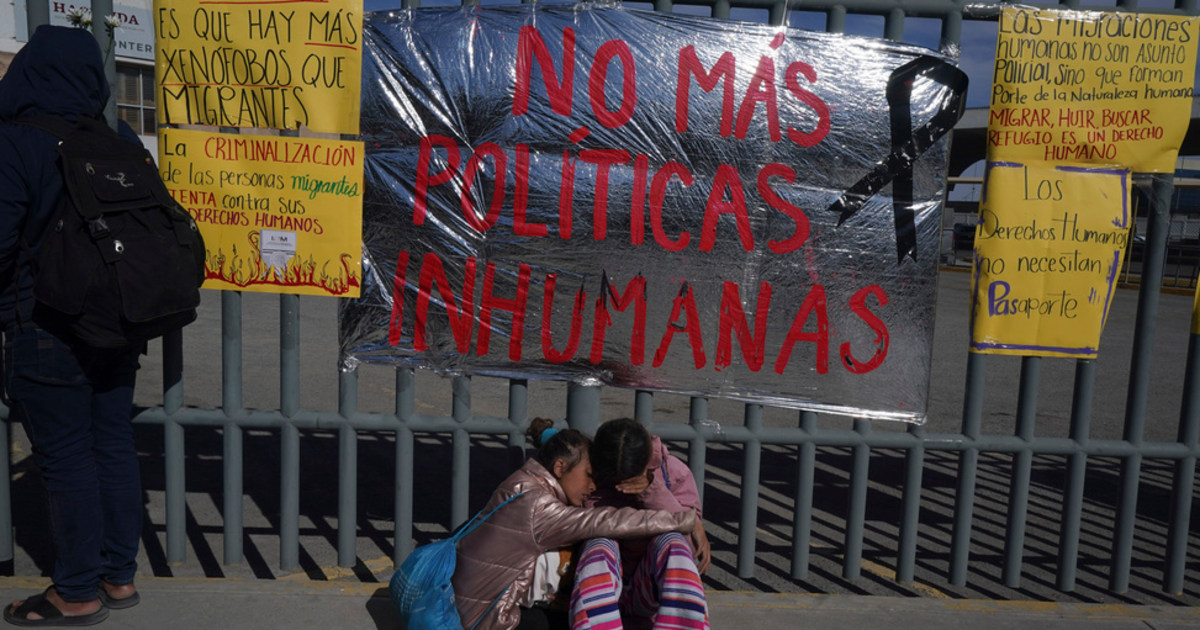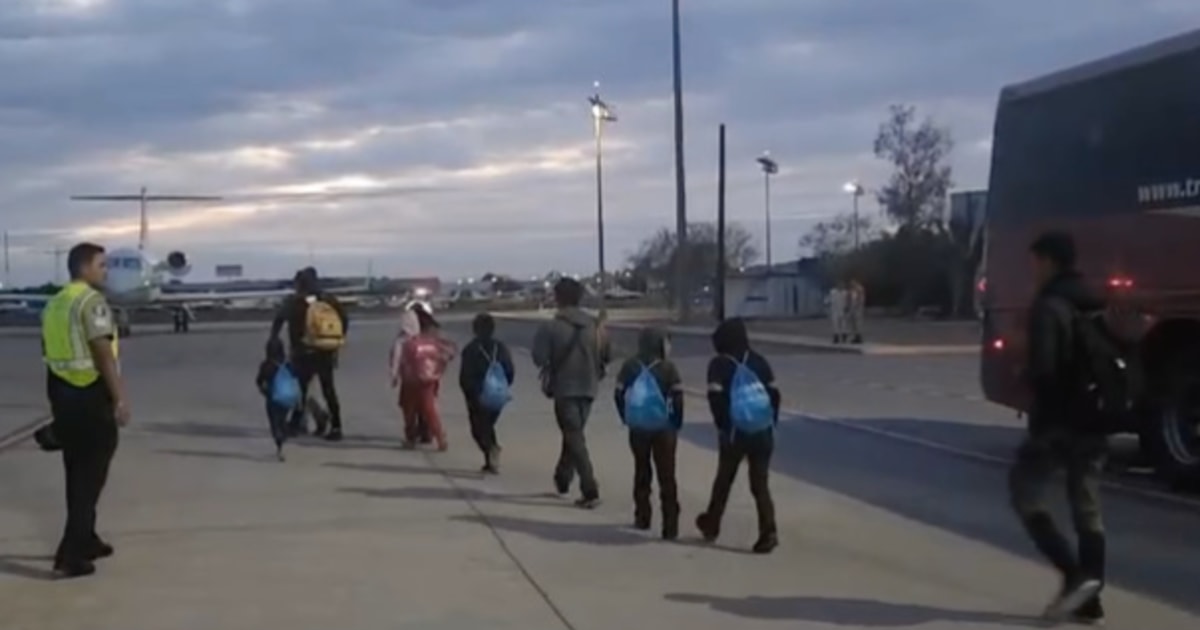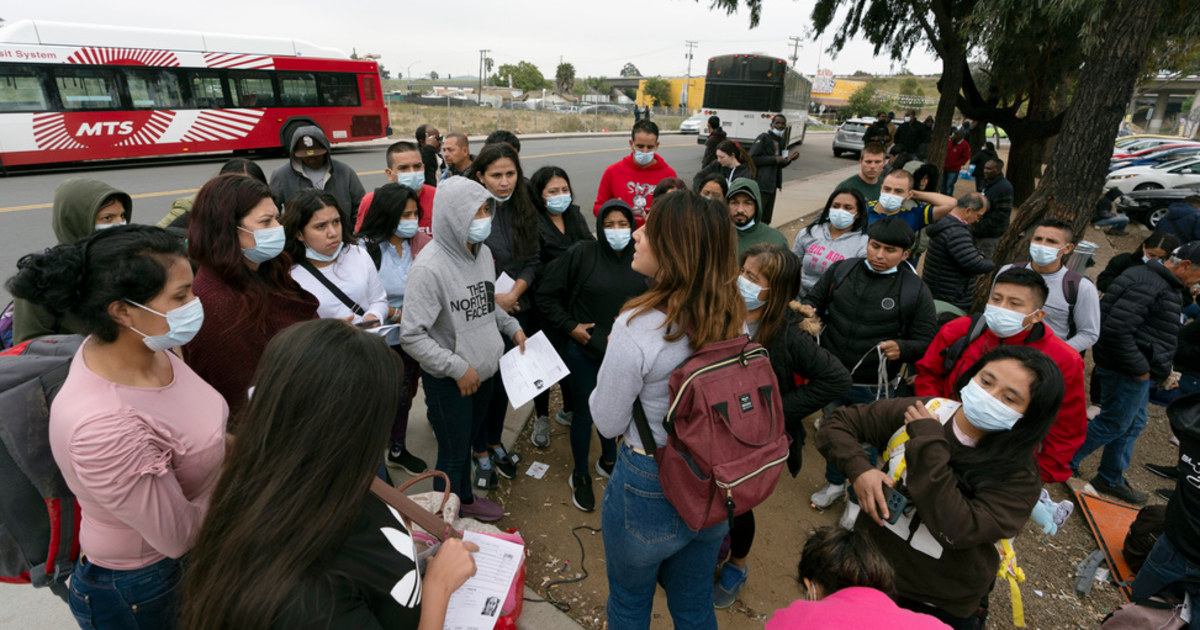By Carmen Sesin -
NBC News
MIAMI — Since the president, Joe Biden, launched a humanitarian
parole
program , which allows the monthly entry of 30,000 migrants from Nicaragua, Cuba, Venezuela and Haiti, as long as they have sponsors and arrive in the United States by plane, there has been been developing a clandestine industry conducive to fraud.
One of the conditions to apply for the
parole
program is to have a sponsor in the United States.
These sponsors, usually close relatives, must provide financial support for at least two years.
[Biden slows the arrival of Cubans, Venezuelans and Nicaraguans to the southern border by 97% after tightening measures]
Although it was not designed for people to profit from it, many deals are being done quietly through word of mouth and the WhatsApp messaging app.
There are even sponsorship ads on social media.
Prices are usually between $8,000 and $10,000, but many of them are scams.
A resident of Cuba, a young doctor whose name is being kept anonymous for security reasons, told NBC News, the sister network of Noticias Telemundo, that she was scammed by a Facebook user.
She thought she had found someone trustworthy who could be her ticket to the United States.
“Most of them say they have relatives in Cuba who will pay them back if something goes wrong, but they are all lies,” said the 28-year-old woman.
Mayorkas explains how they reached the figure of 30,000 humanitarian 'paroles' for four nationalities
Jan 30, 202303:00
A relative of the young doctor made a transfer of $1,800 to the "sponsor," money that her family in Cuba had spent years saving.
They were told $800 was for the application process and $1,000 for a lawyer.
After the transfer was done, the person disappeared and blocked the woman on Facebook.
[Nearly 600,000 migrants who have crossed the border since March 2021 have been released into the US without a court date]
“Many people I have contacted since then ask me for money in advance.
When I tell them I'm not going to pay in advance, they block me immediately," the woman explained.
The Cuban doctor said she knows people who paid "sponsors" and received travel documents, only to discover that the travel documents were fake.
“I've heard of people paying others for this type of service and they just disappear,” said John de la Vega, a Miami-area immigration attorney.
“They take advantage of desperate and vulnerable people trying to get to the United States,” de la Vega says.
Much of the fraud can be found on social media platforms like Facebook and Instagram.
[Latinos have 'brown-eyed soul': this is how they achieve success in R&B music]
In a Facebook post, a user named “sponsor” says: “We offer sponsors for $10,000 per person paid through Zelle from the United States or in cash in Cuba.
5,000 in advance and 5,000 when the papers are ready, before leaving Cuba.”
In another post aimed at Venezuelans, a person advertises his services with “combo” package offers.
There are three options, the most expensive consists of sponsorship, airport pick-up and a month's stay at the sponsor's home for $8,200.
The ad indicates that it includes “taxes”.
Florida is home to the largest communities of Venezuelans, Cubans, Nicaraguans and Haitians in the United States, and many of them are receiving requests from family and friends abroad to become godparents.
These are the changes in tax deductions that will apply this season
Feb 5, 202301:35
But not everyone meets the requirements to be godparents, which include having legal immigration status and showing that they have sufficient financial resources.
Some family members are simply not willing to take on the responsibility of becoming godparents, even if they meet the requirements.
Sponsors can also be organizations or companies.
[Nearly 1,000 migrant children separated by the Trump Administration have yet to be reunited with their parents]
"When the
parole
program for Venezuelans was approved, I received about ten calls a day from people from Venezuela asking us to sponsor them," explains Patricia Andrade, who helps newly arrived Venezuelans through her nonprofit organization Raíces Venezolanas. in Miami.
He says that his organization does not have the capacity to sponsor people.
Those without sponsors often turn to social media, where scams abound.
And after a coalition of 20 red states sued to shut down the program, desperation has grown among those seeking to come to the United States.
On a Facebook page called “Sponsors for Venezuelans to USA,” with more than 2,500 members, many write about their frustration with people who offer to sponsor but demand thousands of dollars before they start applying.
[Florida seeks to expand the questioned program of migrant flights to Democratic states]
"Everyone asks for money in advance and in the end it's a scam," wrote one user.
Another wrote: "So sad to see how they mock the need of others."
The federal government does review sponsorship applications to detect possible fraud and scams.
In a statement to NBC News, US Citizenship and Immigration Services (USCIS) said: “The agency carefully screens each potential sponsor through a series of screening measures based on the fraud and security before confirming a properly filed I-134A, Online Application for Sponsor and Statement of Financial Support.”
Cubans queue to enter the US embassy in Havana, Cuba, on January 4, 2023.Adalberto Roque / AFP via Getty Images
The statement also says that "USCIS thoroughly reviews each reported case of fraud or misconduct, and may refer those cases to federal law enforcement for further investigation."
But many of the scams target people and take their money before they have had a chance to apply.
[How long does an I-130 process for parents take? They are Mexican and have been outside the US for 13 years]
USCIS said they advise beneficiaries to be wary of people who try to contact them online or through social media accounts and offer to be a supporter or connect the beneficiary to a supporter in exchange for a fee or otherwise. of compensation.
Their website lists ways to report fraud and tips to avoid scams.
"We fall into the trap out of despair"
Yovanna Dimatteo, 38, from Venezuela, left for neighboring Colombia a year ago with her husband and two children in search of a better life.
After the Biden Administration announced the
parole
program for Venezuelans, Dimatteo and her husband decided to take advantage of the opportunity, since the situation for them was deteriorating.
Yovanna Dimatteo.Courtesy of Yovanna Dimatteo
Dimatteo said he contacted churches, organizations and individuals in the United States, and those who were willing to be sponsors asked him for money.
He said he called a Utah church and the person he spoke to asked for $1,500 up front and $1,500 after he arrived.
Other people he contacted asked for between $8,000 and $10,000.
“There are people out there capable of making stuff up and innocent people fall for it,” Dimatteo said.
“We fall into the trap because of the despair and anguish that we face.”
The
parole
program was initially launched in October 2022 for Venezuelans and was expanded last month to include Cubans, Nicaraguans and Haitians.
Under the program, up to 30,000 people from each country are eligible for this humanitarian program each month, which entitles them to work in the US for two years.
Anyone who attempts to cross the border illegally is returned to Mexico and denied the ability to apply for asylum.
The program was announced as Biden was faced with a record number of migrants crossing the US-Mexico border, including the largest number of Cubans in history.

